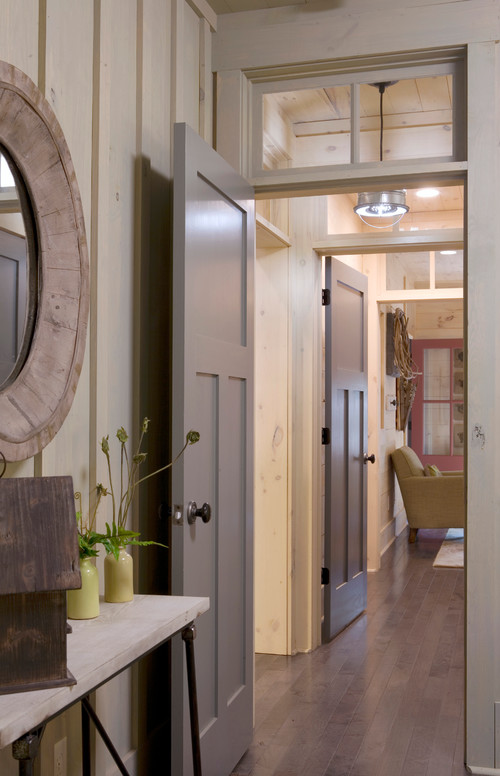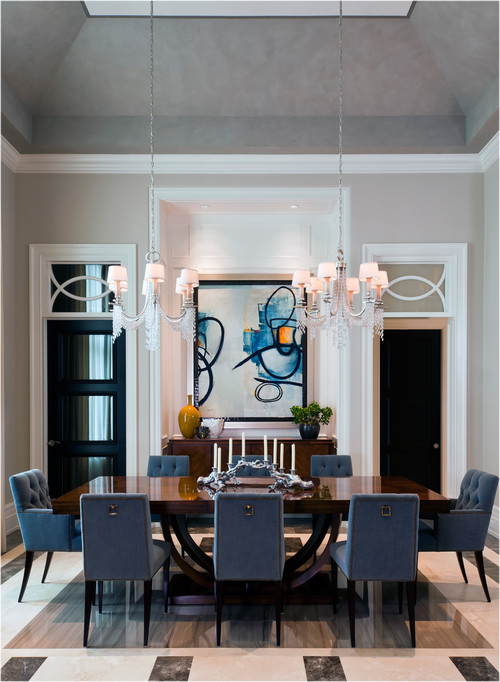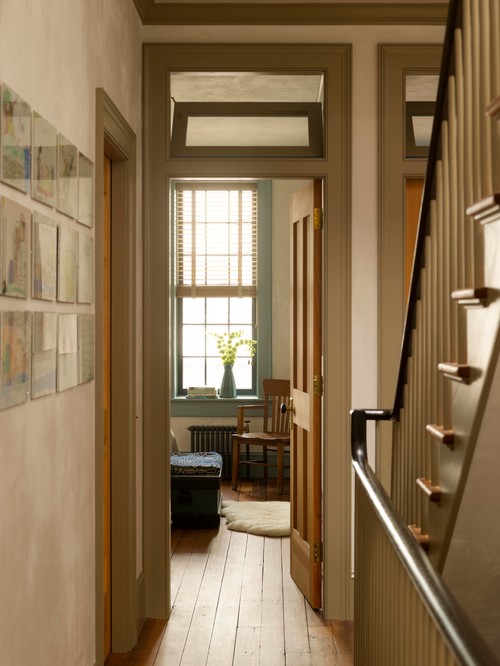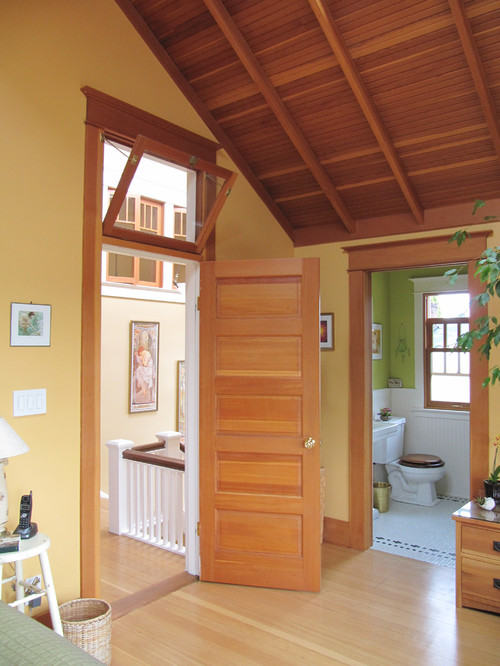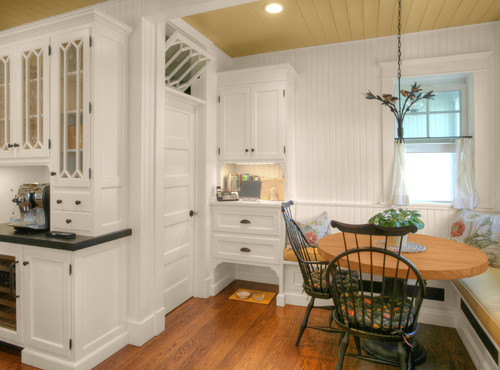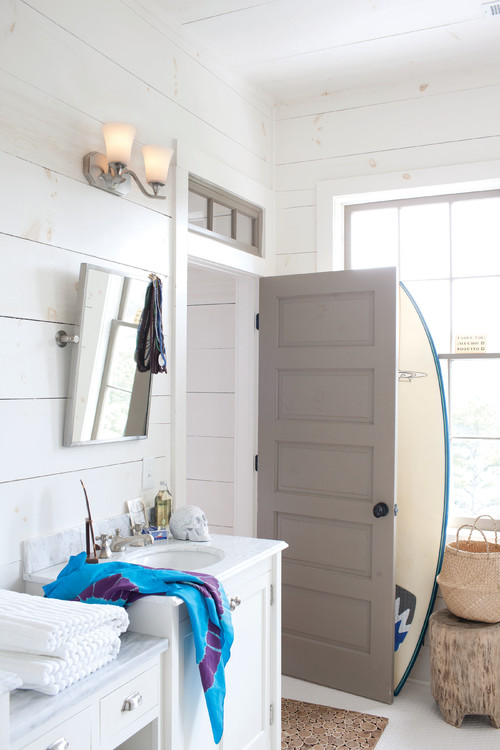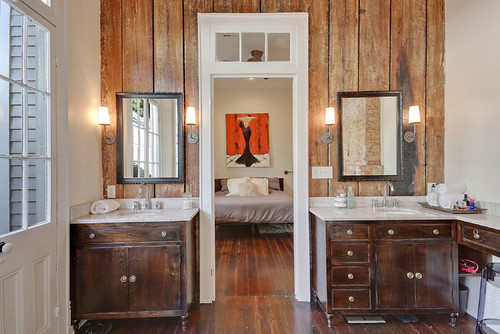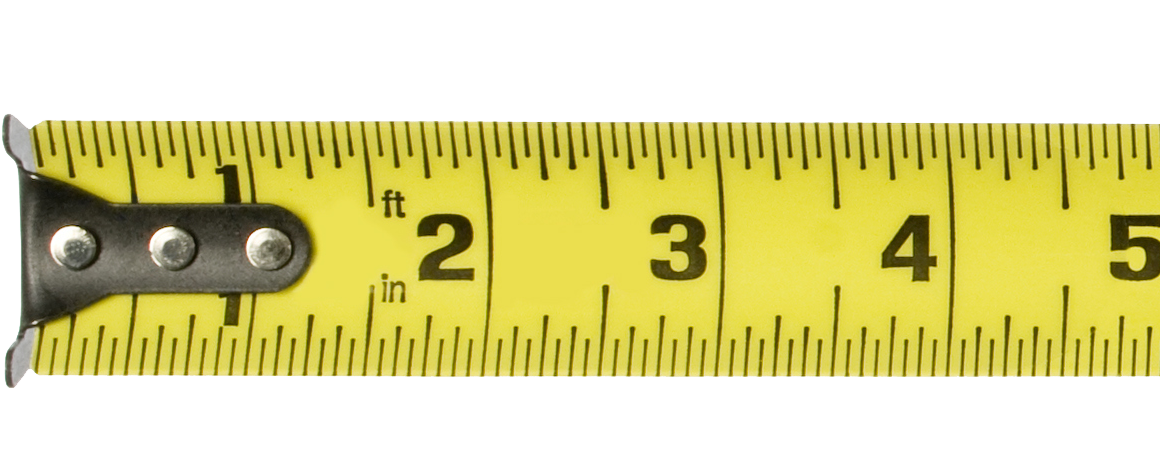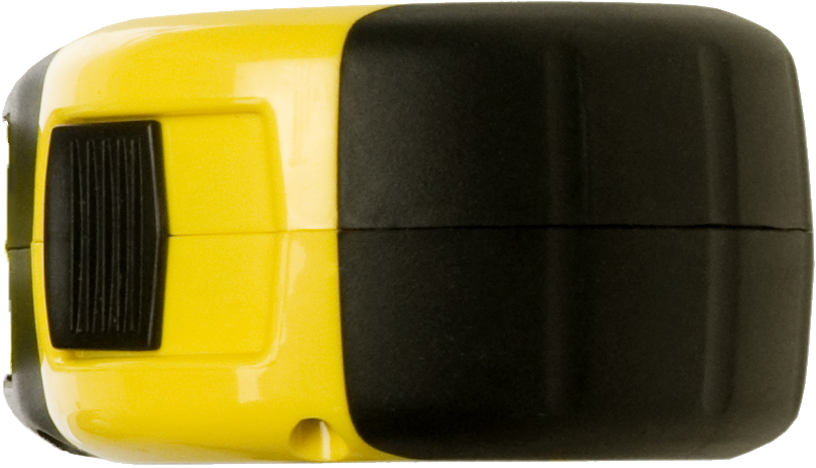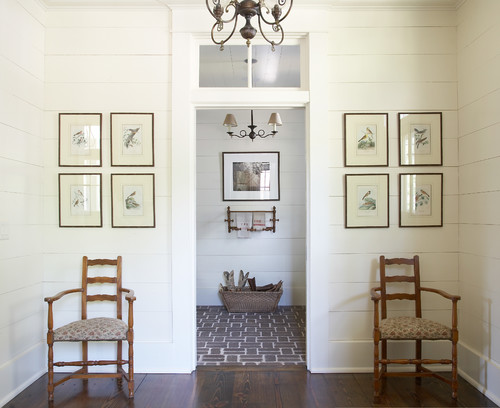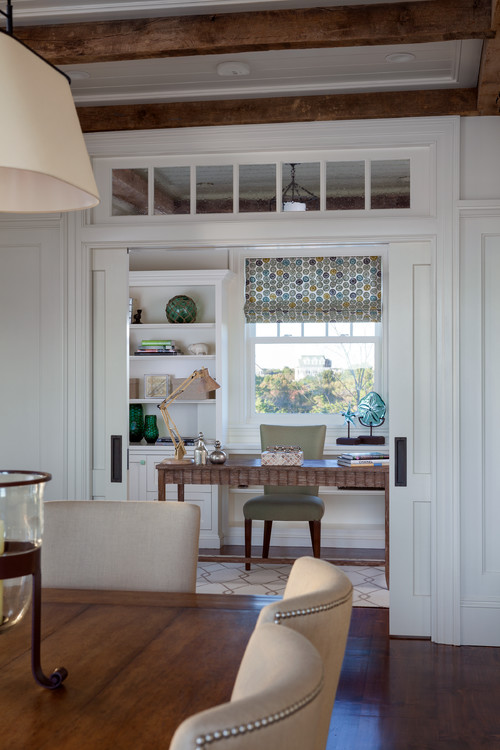Interior Transom Window Over Door
How to Use This Page
Each picture below contains a Measure & Plan button. Click this button to go directly to measuring and planning videos for the picture you see.
Standard Installation
Adding a transom above a door allows you to share light between rooms and add distinctive style to the doorway.
STANDARD: Transoms over doorways in a hall help create a common sense of style
STANDARD: Taller transoms featuring pattern CT-3 match the taller walls in this dining room
Customization - Operating Transom
Historically, operable transom windows above doors played a role in the heating and cooling in a home. Operable transoms have sashes that can be opened or closed to help regulate the temperature in a room when the door is closed.
An open transom window in the winter helped heat from the central fireplace reach bedrooms at night. In the summer, windows were opened at the front and the rear of the home to create airflow. Open transoms in the main hallway helped suck warm air from the bedrooms cooling them down.
With modern heating and air conditioning, most modern transoms are fixed (non-operating). However, we continue to offer operable transoms as an authentic and nostalgic customization option.
OPERATING: Operating, chain and latch transom brings sophisticated charm to hallway
OPERATING: Airflow between bedroom and hall fostered by an operating transom
OPERATING: A pivot-hinged operating transom into a pantry

Variation - Taller Mull
The mull is the joining area or connection space between the transom and the door below. Comparing the pictures below to the pictures above, you can see that making the mull between the transom and the door taller can change the overall style of the combination quite a bit.
As in the picture immediately below, the most common reason for a taller mull is to coordinate with the size of the casing around the door. As below, when the mull and casing are the same size you can foster a sense of balance in the design.
Although a taller mull can be implemented for most any profile of casing around the adjoined door, doorways with 1x4 flat casing seem to best benefit with a mull height that is coordinated with the casing width.
TALLER MULL: Transom brings light to an adjacent hallway without sacrificing privacy
TALLER MULL: Taller mull with non-flat casing (RB-3) still works but is not as common
Variation - Pocket Door
Pocket doors are a great problem solver when the storage of a door against a wall is problematic. Transoms can easily be placed above pocket doors with a little planning — and they add so much style to an otherwise plain opening!
Pocket doors are most common when the door placement is in the center of the room -- where door storage is a problem.
The picture below shows how adding a transom window above a pocket door can transom the doorway from a problem solver to the centerpiece of the room.
POCKET DOOR: A perfectly executed transom over a pocket door in the center of a wall
POCKET DOOR: Transom helps further connect this dining room with study.
POCKET DOOR: Another pocket door where the transom helps connect the two rooms together

